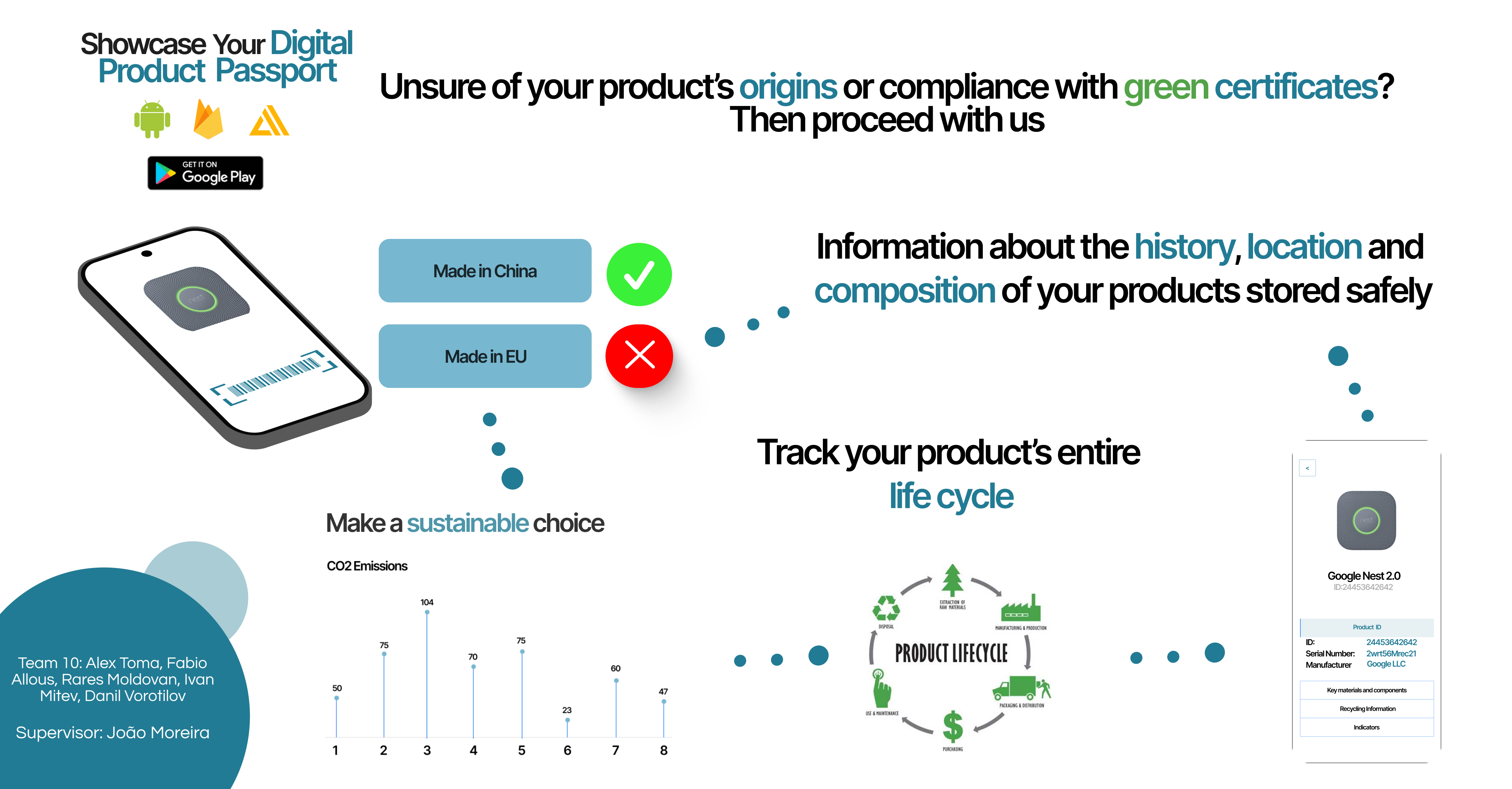


The main idea of the DPP(Digital Product Passport) is to enable the implementation of a Digital Twin of any product, tracking all associated information of the product, from the idea to the consumer and the end of life. The DPP will contribute to decoupling economic growth from resource extraction, waste generation, and carbon emissions, thereby making a significant positive impact. The DPP is a groundbreaking circularity approach, but aspects such as scope, technology infrastructure, and data governance are still under development. In this project we have developed a consumer-focused DPP for one smart device from the IoT Lab (a Google Nest Protect v2). The DPP was developed in the form of an android mobile phone application with a cloud-based backend. Using Kotlin, Amazon Web Services and Firebase, the application was based on research into DPPs and already available solutions. We have also designed the application in a scalable way, so it is not only a proof-of-concept but can also be further built upon.
The CS Design Project module is one of the two final modules of the Bachelor. In the design component of this module, students show that they master the entire design trajectory, from the first informal specification of requirements by a client to the delivery and presentation of a well-documented working product. Projects are submitted by clients from either inside or outside the University. Students perform the project in groups of 3-5 students under the supervision of a teacher from the Department of Computer Science. The supervisor is also the one who assesses the process and products of the group. Project deliverables include a project proposal, a design report, a presentation and a poster.
View the full design report for this project.

The main idea of the DPP(Digital Product Passport) is to enable the implementation of a Digital Twin of any product, tracking all associated information of the product, from the idea to the consumer and the end of life. The DPP will contribute to decoupling economic growth from resource extraction, waste generation, and carbon emissions, thereby making a significant positive impact. The DPP is a groundbreaking circularity approach, but aspects such as scope, technology infrastructure, and data governance are still under development. In this project we have developed a consumer-focused DPP for one smart device from the IoT Lab (a Google Nest Protect v2). The DPP was developed in the form of an android mobile phone application with a cloud-based backend. Using Kotlin, Amazon Web Services and Firebase, the application was based on research into DPPs and already available solutions. We have also designed the application in a scalable way, so it is not only a proof-of-concept but can also be further built upon.
The CS Design Project module is one of the two final modules of the Bachelor. In the design component of this module, students show that they master the entire design trajectory, from the first informal specification of requirements by a client to the delivery and presentation of a well-documented working product. Projects are submitted by clients from either inside or outside the University. Students perform the project in groups of 3-5 students under the supervision of a teacher from the Department of Computer Science. The supervisor is also the one who assesses the process and products of the group. Project deliverables include a project proposal, a design report, a presentation and a poster.
View the full design report for this project.